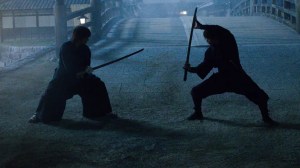Filmmaker Ari Aster delivered audiences his first film Hereditary last year, which debuted at the Sundance Film Festival to immense praise, with the film’s theatrical release failing to connect as strongly with general audiences. Despite the popularity of the horror genre, the film’s financial shortcomings and D+ Cinemascore reminded us that audiences still aren’t interested in deviating too drastically from genre tropes and prefer their terrifying fare to be more straightforward. Aster has returned with his sophomore effort Midsommar, another ambitious effort that serves more effectively as a black comedy featuring graphically violent imagery which defies conventional horror tropes, even if the film’s journey takes you to where you were expecting to go.
Videos by ComicBook.com
After suffering a family tragedy, Dani (Florence Pugh) is reluctantly invited to join her boyfriend Christian (Jack Reynor) on his trek to Sweden alongside his buddies for what was intended to be a somewhat debaucherous trip featuring an ancient ritual, with this dynamic seemingly souring the whole adventure. When the friends arrive at the remote Swedish village, they learn that there might be a good reason this festival has been kept from the public eye, as every lighthearted ritual comes with ceremonies that are much darker.
Both thematically and visually, Hereditary was a dark and dreadful affair, depicting a family coping with tremendous loss. Midsommar marks a major departure from Aster’s debut, tonally and with its cinematography, as the film refuses to let anything lurk in the shadows. Despite those differences, both films grapple with intense emotional reactions to loss, with Midsommar lamenting the loss of love as opposed to the loss of a family member. Much like Midsommar refuses to let any creepy figures hide in the shadows, Christian’s shortcomings are seen as clear as day, yet Dani’s hope for their relationship makes her blind to these signals, similarly to how our protagonists are too intoxicated by the Swedish locale to witness the warning signs of this commune’s intentions. The much more hopeful storyline and absurdity of the situation, largely thanks to our heroes’ obliviousness to the bizarre rituals, create many more genuinely hilarious moments for the audience, which makes the horrific moments far more jarring.
As evidenced by the film’s marketing campaign, knowing that this film features a group of Americans heading to a remote European community that conducts bizarre rituals will immediately conjure similarities to films like The Wicker Man or Hostel, which will automatically tip viewers off to the direction that the storyline will take you. In other words, we know that this journey won’t end on a happy note, with the biggest questions being how many of our main characters will suffer trauma and just how gruesome their trajectories will be. The emphasis of the experience leans far more heavily into the emotional horrors that our main characters will be subjected to, yet the film isn’t entirely without disturbing imagery. The film owes much more to a filmmaker like Alejandro Jodorowsky than to any contemporary horror visionaries, confirming that both from a narrative and visual perspective, Aster is proving himself to be a peerless filmmaker dabbling in the horror realm.
Midsommar is sure to frustrate audiences, both intentionally and accidentally. Viewers who were hoping for a traditional horror film will surely be bothered by two and a half hours of humor and long, static shots of the Swedish countryside featuring hypnotic visual effects to reflect the altered perspectives of characters who feel as though they are losing their grip on reality. On the other hand, viewers who know what they’re in for will be frustrated at the complex and subtle characters relationships at play, wondering how they could be oblivious to the emotional abuse they endure or the passive torment they are inflicting on one another.
Regardless of expectations, Midsommar delivers a dizzying descent into madness that might take turns that well-versed genre fans are anticipating, though Aster finds new ways to manifest horrors that are just as effective allegorically as they are literally. The film feels wholly unique in the genre, which is sure to make for yet another divisive entry in Aster’s burgeoning catalog.
Rating: 4 out of 5
Midsommar lands in theaters on July 3rd.








